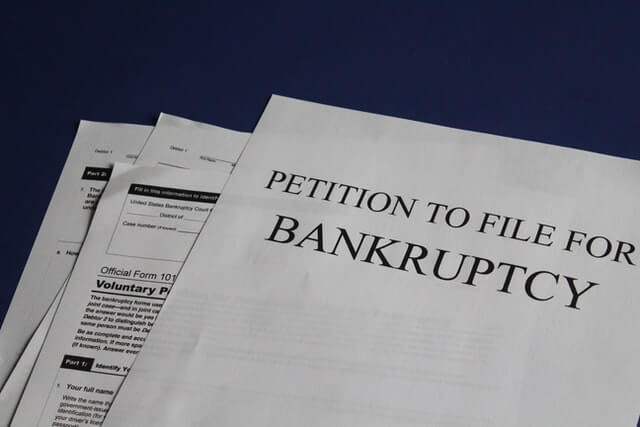In rental real estate, tenant bankruptcy is a challenging situation that landlords may encounter. Therefore, landlords must understand the implications it has on landlords. They also have to be aware of the legal rights of both tenants and landlords. By doing so, they can effectively navigate this complex scenario. This article will explore such implications, discuss legal rights, and provide guidance on handling the situation professionally and responsibly.

Implications of Tenant Bankruptcy for Landlords
Rent payment disruption
Tenant bankruptcy often leads to a disruption in rental payments. As a landlord, this can have financial implications. Specifically, it will affect your cash flow. Furthermore, it can potentially impact your ability to meet mortgage payments or other property expenses.
Lease termination challenges
Tenant bankruptcy may complicate the lease termination process. Landlords have the right to terminate a lease due to non-payment or other breaches. However, bankruptcy laws can impose restrictions and require court involvement in evictions or lease terminations.
Bankruptcy laws prioritize the debtor’s financial recovery and aim to provide relief to the tenant. They can do this by temporarily halting collection efforts and allowing tenants to reorganize their finances. This focus on the debtor’s welfare can restrict landlords’ rights in certain situations.
Under bankruptcy laws, tenants have the opportunity to propose modifications to lease agreements. It will be deemed a part of their efforts to reorganize their finances. These modifications may include requests for rent reduction, changes in payment schedules, or adjustments to other lease provisions.
Legal Rights of Tenants and Landlords in Tenant Bankruptcy
Automatic stay
One of the key features of tenant bankruptcy is the automatic stay. As soon as the bankruptcy case is filed, this legal provision goes into effect. The automatic stay prohibits most collection efforts against the debtor, including eviction proceedings. Additionally, it aims to provide the tenant with temporary relief from financial pressures. This way, then can reorganize their affairs without the immediate threat of eviction.
Landlord’s right to file a claim
Landlords have the right to file a claim with the bankruptcy court for any unpaid rent or damages owed by the tenant. Consequently, filing a claim allows landlords to seek reimbursement from the tenant’s bankruptcy estate.

Lease assumption or rejection
In bankruptcy, the tenant may choose to assume or reject the lease. Therefore, if the tenant decides to assume the lease, he agrees to continue fulfilling his obligations under the lease agreement. On the other hand, if the tenant rejects the lease, it is terminated, and the landlord can regain possession of the property.
Eviction proceedings
While bankruptcy laws offer protections to tenants, they also recognize the rights of landlords. Landlords may seek relief from the automatic stay. Thus, they can proceed with eviction proceedings or other legal actions related to the tenancy. However, obtaining such relief often requires landlords to demonstrate that the tenant’s bankruptcy filing has caused them significant financial hardship. They may also claim that the tenant has violated certain lease obligations.
Handling Tenant Bankruptcy Professionally
Consult with legal professionals
Seek advice from an attorney experienced in bankruptcy and landlord-tenant laws. They can guide you through the legal processes, help protect your rights, and ensure compliance with applicable laws.
Communicate with the tenant
Maintain open lines of communication with the tenant during the bankruptcy process. Respect their rights while also asserting your own. Discuss the impact of the bankruptcy on the lease, rent payment expectations, and any necessary steps for resolution.

Cooperate with bankruptcy proceedings
Cooperate with the bankruptcy court and follow any requirements or orders pertaining to the tenant’s bankruptcy case. Provide requested documentation or information to support your claim and participate in the proceedings as necessary.
Tenant bankruptcy presents challenges for landlords, impacting rent payments and potentially complicating lease termination. Understanding the implications of tenant bankruptcy and the legal rights of the parties involved is crucial for navigating this situation responsibly. Remember, each bankruptcy case is unique. Therefore, consulting with legal professionals is essential to ensure compliance with the applicable laws and regulations governing tenant bankruptcy.
Tenant bankruptcy often leaves the landlord with a vacancy. Consider utilizing Padleads to find new tenants. It is an online listing platform that connects landlords and rental agents with potential tenants. It has a user-friendly platform and extensive listing syndication. You will gain a higher chance of finding reliable tenants and maintaining a steady rental income.